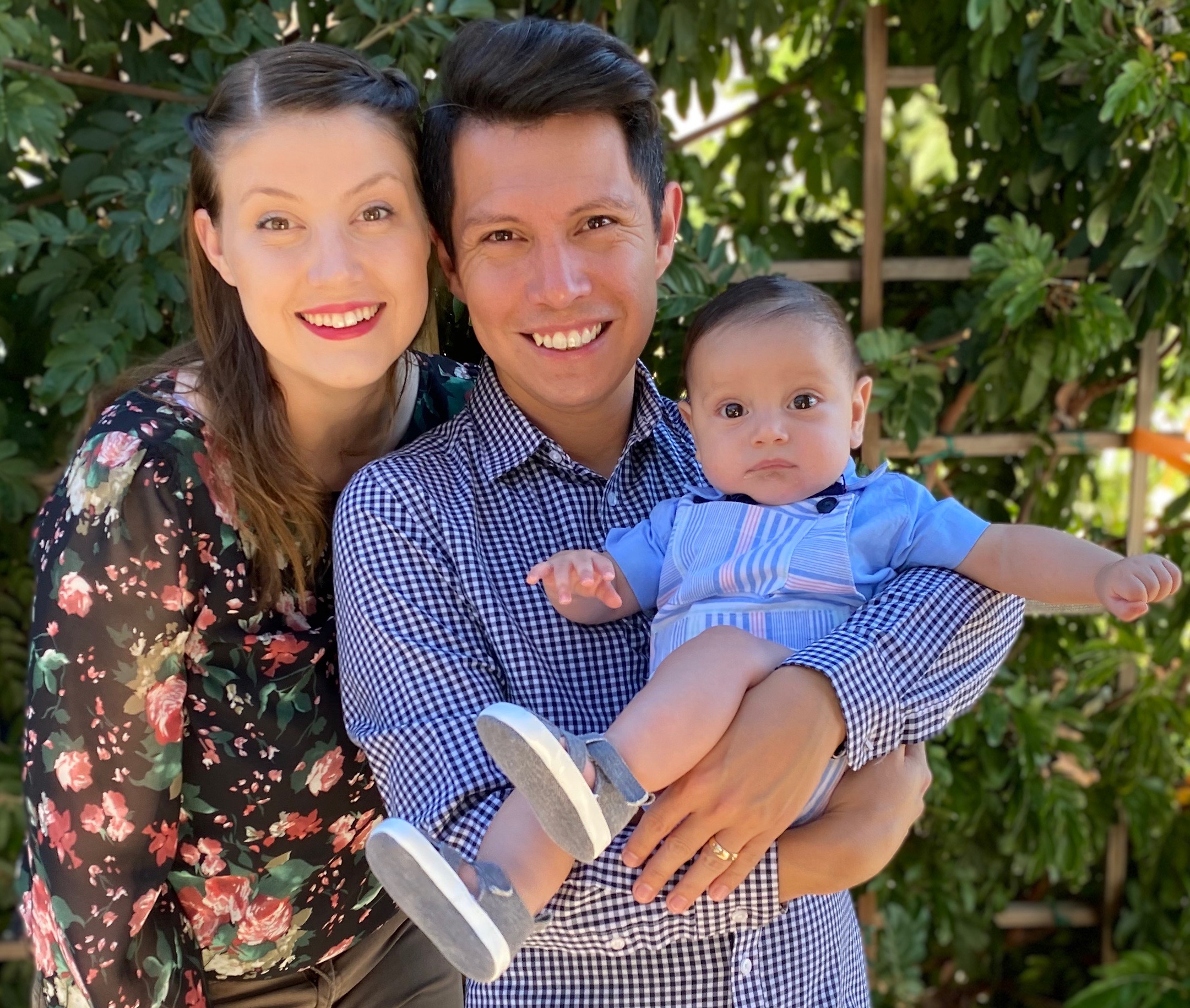Getting to Know Rudy and Emily Manrique
August 8, 2020
This month I interviewed Rudy and Emily Manrique to help us all get to know them. Rudy has begun his pastoral internship with us, so they will become members. Through this internship, Rudy will be completing our denomination’s requirements for men seeking to be ordained to pastoral ministry. Our presbytery has a checklist of requirements that Rudy will need to fulfill during his internship, such as preaching, teaching Sunday school, visitation, attending Session meetings, and leading Bible studies.
We are blessed as a church to help Rudy prepare for pastoral ministry. The majority of seminary training is focused on studying Scripture, theology, Hebrew, Greek, and church history. This pastoral internship will help Rudy apply what he learns in seminary in the context of a local church. The Session has also asked Rudy to focus some of his time during his internship on working with the youth in our church. Many of us got to know Rudy through his involvement with our Youth Camp last year, and since then the Session has been working to get Rudy and his family here at Grace to begin his internship.
Rudy and Emily live in student housing at Westminster Seminary in Escondido. Inviting them over for lunch after worship before they make the drive back home would be an excellent way of showing hospitality and also getting to know them. Here are the questions I asked each of them:
How did you become a Christian?
Rudy: I was baptized and raised in a very nominal Roman Catholic family, so I was never taught anything in regards to the Bible or the Christian faith. I always “believed" there was a God, though that had no spiritual or moral impact on the way I lived my life, especially throughout my teenage years. However, when I was 18 years old, a friend from high school invited me to go to his church, which was Pentecostal. I was very hesitant to say Yes because I thought of myself as a Roman Catholic. Long story short, my friend got me to go and during the service I became aware that I needed a Savior.
Emily: I never knew a time that I did not believe in God. Growing up in evangelical churches, I responded to several altar calls and was baptized when I was nine years old.
2. How did you become Reformed?
Rudy: After being in the Pentecostal church for a number of years, another friend of mine introduced me to the doctrines of grace. At first I was really offended by them because I had a very synergistic view of salvation, though I was unaware of it. But after much study and wrestling with the Scriptures, I came to the realization that the doctrines of grace are biblical and embraced them. Afterward, I joined a Reformed church and embraced other tenets of the Reformed faith.
Emily: A high school friend of mine was a particular Baptist who taught me Reformed soteriology. After I met Rudy he taught me about eschatology and paedobaptism. Every new thing I ever learn about God is a sweet ministration.
3. Rudy, at what point in your life did you begin to feel a sense of call to pastoral ministry?
As I matured in my faith, my friends would often suggest that I become a pastor. I really wasn’t up to the idea, but when I joined a Reformed church, my pastors at the time asked if I wanted to be an elder. For me, it was confirmation that God was calling me into pastoral ministry. Since then, the desire for pastoral ministry has not only grown, but my love for the Church has as well.
4. Rudy, how much longer do you have in your studies at Westminster Seminary California for the Master of Divinity degree? When do you hope to be ordained?
This school year I will begin my third year out of four. It’s been quite a journey, but God has been so faithful through it all. Lord willing, I hope to be ordained soon after I graduate.
5. What’s something you practice in your Christian life (outside of prayer, Bible reading, and Lord’s Day worship) that helps you grow spiritually?
Rudy: I love to listen to podcasts such as the Heidelcast, read Hebrew and Greek for fun—though I’m not that good at it (yes, I’m a geek like that), and watch church history documentaries. I enjoy going on walks and praising God for his marvelous works in creation. I also view my school work as an act of worship.
Emily: I love to read (fiction and nonfiction). I try to put my reading to good use by learning about others’ worldviews and perspectives in order to better communicate my faith to whoever crosses my path.